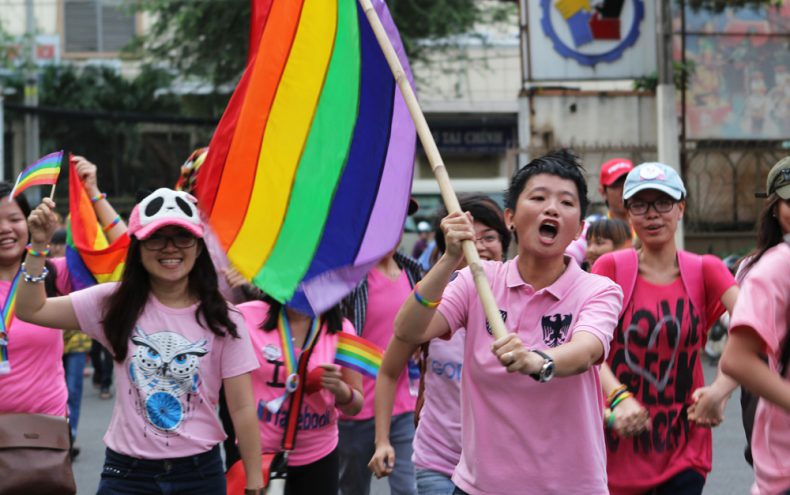UNAIDS calls for strengthened partnerships to leave no one behind
HA NOI, 17 May 2018—On the International Day against Homophobia, Transphobia and Biphobia (IDAHOT), UNAIDS is calling for strengthened partnerships to support lesbian, gay, bisexual, transgender and intersex (LGBTI) people and their families being affected by HIV and facing discrimination.
“Stigma, discrimination and social and physical violence against sexual and gender minorities prevent them from accessing health services,” said Michel Sidibé, Executive Director of UNAIDS. “Everyone has the right to health, no matter their gender or sexual orientation. For that, we need zero discrimination for everyone, everywhere.”
Gay men and other men who have sex with men and transgender women are among the populations most affected by HIV worldwide.
More than 40% of countries criminalize same-sex sexual relationships. Criminalizing people because of their gender identity or sexual orientation drives people underground and out of reach of essential health and social services, making them vulnerable to poor health and homelessness.
To end AIDS, it is essential to ensure that people can access HIV prevention technologies, including condoms and PrEP, and quality HIV treatment and care free from discrimination. UN Women, the United Nations Development Programme and UNAIDS are working with the Global Network of People Living with HIV to end all forms of HIV-related stigma and discrimination. The initiative will require rapid multisectoral support and civil society leadership and will contribute to achieving the time-bound commitments of United Nations Member States to end AIDS as a public health threat by 2030.
Increasing political commitment and investments for the health and well-being of some of the most vulnerable people in society will help to ensure that no one is left behind.
KEY FACTS
|
IDAHOT, a worldwide celebration of sexual and gender diversity, is commemorated annually on 17 May. This year’s theme is alliances for solidarity to bring respect for LGBTI people and their families.




